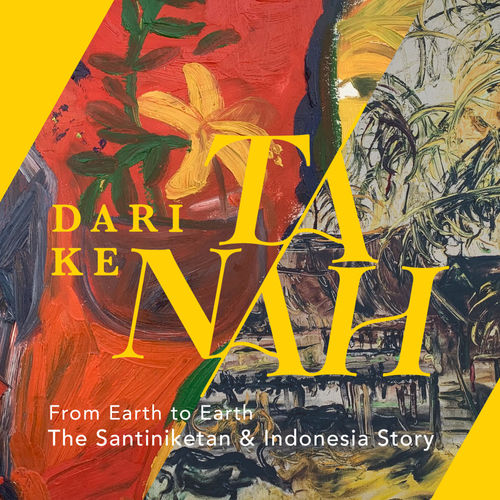DARI TANAH KE TANAH.
COMMUNION OF ASIA AND THE WORLD WITH INDIA. UNIVERSAL HUMANISM.
100 years ago, Indian poet, philosopher and Nobel laureate Rabindranath Tagore founded Visva-Bharati, a nationalist and pan-Asian-centric educational institution in Santiniketan, India. It was noted for conducting open-air classes such that the act of seeking knowledge is never divorced from Mother Nature. It rejected the strictures of colonial education and sought to move away from the axis of western modernism to find and define the essence of Asian art. In this way, it espoused a universal humanism that is ingrained in the learners who have been to Santiniketan.
December 1921
Rabindranath Tagore establishes Visva-Bharati in Santinikietan.
1927
Tagore and a few compatriots travels to Indonesia and gathered material relating to the influence of ancient Indic culture in Southeast Asia, particularly in Bali and Java. He visited the nationalist education movement Taman Siswa in Yogyakarta, seeing it as a parallel to Visva-Bharati in Santinikietan.
1932 - 1951
Amongst others, Rusli and Affandi lived and studied in Santiniketan.
DARI TANAH KE TANAH.
FROM INDONESIA TO INDIA. SOJOURNS OPENING UP MINDS. AND INDIA TO INDONESIA.
Between 1932 and 1938, Rusli studied at Santiniketan, receiving a holistic education in painting, dance, music, literature and philosophy. He was the first Indonesian artist to do so; the brevity of expression in his art derives from the aesthetics of eastern art and reveals the pervasive influence of Santiniketan.
Affandi was granted an opportunity to study in Santiniketan by the Indian government in 1949. He arrived as a mature student to Santiniketan, and instead spent two years until 1951 travelling widely within India. This time was profound in his artistic development. Untethered and liberated from the familiar, and experiencing heightened sensations towards new environments as a sojourner, Affandi came into being as an expressionist painter in India.
Fast forward to today. This exhibition features selected works of Rusli and Affandi that speaks of sojourns and a sense of immersion in environments conscious only to them because of their exposure to Santiniketan’s unique cultural and philosophical matrix.
